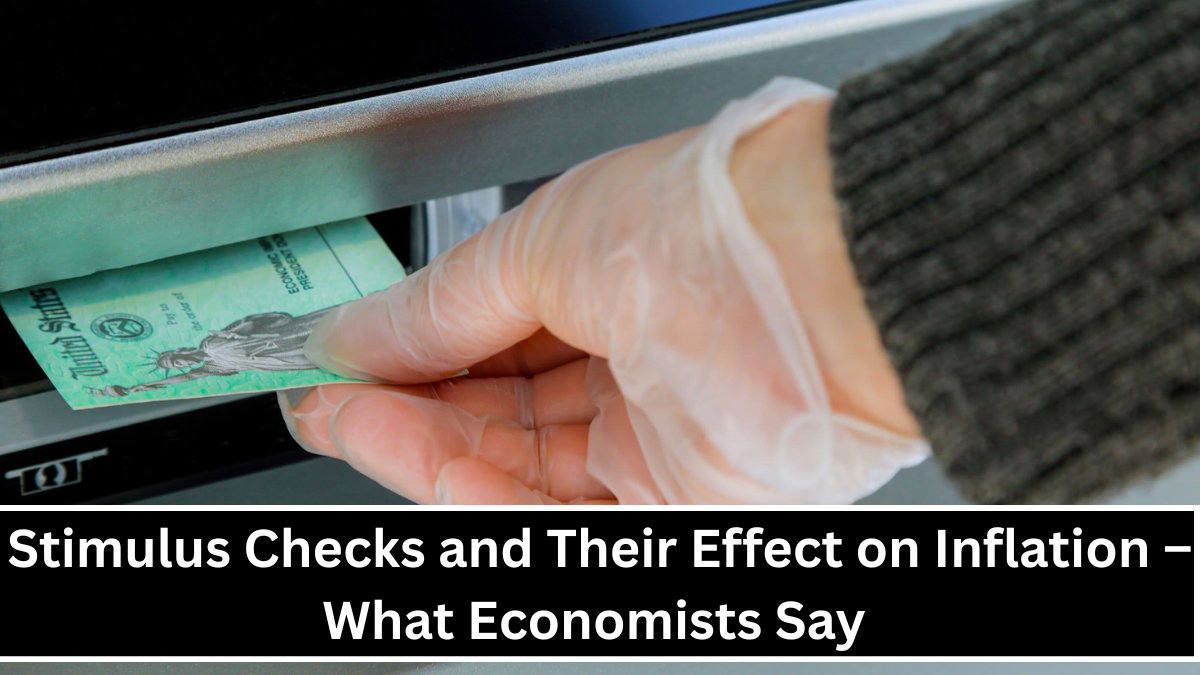During the COVID-19 pandemic, many governments—including the United States—sent money directly to citizens through what were called stimulus checks. These payments were meant to help people pay for rent, food, bills, and other essential needs during a time of job loss and economic shutdowns. While many families were thankful for the support, some economists warned that sending too much money into the economy might lead to rising prices, also known as inflation. Now that the world is slowly recovering, experts are looking back and asking an important question: Did stimulus checks cause inflation? In this article, we will explore what stimulus checks are, how they work, and what economists say about their impact on inflation in the short and long term.
Key Concept: Stimulus Payments and Inflation
Stimulus checks are part of a broader economic tool called fiscal policy, where governments try to boost the economy by spending money. In the United States, these checks were part of large spending bills in 2020 and 2021. Most Americans received three rounds of stimulus payments, ranging from $600 to $1,400 per person.
While this gave families quick cash to survive tough times, economists noticed that prices started to rise sharply in late 2021 and into 2022. This led many people to ask—were the stimulus payments partly to blame?
Economists are divided on the answer.
Some experts say that stimulus checks did add to inflation, but only as one part of a larger problem. People suddenly had more money to spend, but due to global supply chain issues, there were fewer goods available to buy. This led to higher prices, especially for things like cars, electronics, groceries, and housing. Other economists argue that stimulus checks helped prevent a deeper recession and saved millions of jobs. Without them, they say, the economy would have slowed down even more. In their view, inflation was caused mostly by supply problems, rising energy prices, and the effects of the pandemic—not just by putting more money in people’s hands.
In reality, both views may be partly true. The government support helped people stay afloat, but it may have also added pressure to an already strained economy, causing prices to rise faster than usual.
Table: Quick Facts – Stimulus Checks and Inflation
| Feature | Details |
|---|---|
| Purpose of Stimulus Checks | Boost consumer spending during crisis |
| Years Issued | 2020 and 2021 |
| Amount Given | $600 to $1,400 per person (3 rounds) |
| Inflation Rise Begins | Late 2021 to mid-2022 |
| Other Causes of Inflation | Supply chain issues, oil prices, war |
| Main Debate | Did stimulus worsen inflation or help? |
Stimulus checks were created to solve a short-term problem—economic slowdown due to the pandemic. For millions of people, they were a lifeline, helping them survive job losses and business closures. But as prices started rising later, many began to wonder whether that short-term help had long-term costs.
Economists generally agree that stimulus payments were one of several factors that contributed to inflation, but not the only reason. Supply chain disruptions, labor shortages, and rising energy prices also played major roles. It’s clear that managing an economy during a crisis is complicated, and every action has side effects. In the end, stimulus checks did help many people—but they may have also played a part in the rising cost of living that followed.
FAQ’s:
Q1. What were stimulus checks used for?
A1. Stimulus checks were government payments given to help people cover basic needs like food, rent, and medical bills during the COVID-19 crisis.
Q2. Did stimulus checks directly cause inflation?
A2. Some economists say they partly caused inflation by increasing demand, but others say inflation was mostly due to supply issues and global events.
Q3. How much money did people receive in stimulus checks?
A3. Most people received three checks—$1,200 in 2020, $600 in early 2021, and $1,400 later in 2021, depending on income level and eligibility.
Q4. Is inflation still a problem today because of stimulus checks?
A4. Inflation has eased in many areas, and most experts believe other factors—like fuel prices and supply chains—have a bigger long-term effect than the checks.
